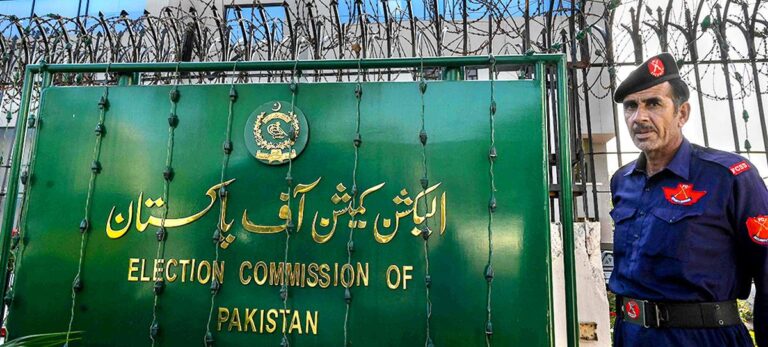“The Sunni Ittehad Council, backed by the party of jailed former Prime Minister Imran Khan, is not eligible to reserve seats as it does not allow non-Muslims to participate, the Election Commission of Pakistan said in a reply filed with the Supreme Court,” according to media reports.
The Election Commission of Pakistan (ECP) on June 23 filed its response in the Supreme Court to the rejection of the Sunni Ittehad Council’s (SIC) petition for reservation of seats for women and minorities in the national and provincial assemblies after the general elections.
The ECP said it could not allot seats to the SIC, which is backed by 71-year-old Imran Khan’s Pakistan Tehreek-e-Insaf (PTI), as the party had failed to submit its list of candidates for the seats by the December 24 deadline. GeoNews report.
The apex polling body added that according to the SIC’s constitution, non-Muslims cannot become party members, which is unconstitutional.
“According to the SIC constitution, non-Muslims cannot become party members. The clause banning the inclusion of non-Muslims in the SIC constitution is unconstitutional. The SIC has no right to reserve seats for women and minorities,” the election monitoring group said.
The commission added that independent candidates joined the SIC after the elections after which the ECP, by a four-to-one majority vote, ruled not to allot seats to the party, a decision which was subsequently upheld by the Peshawar High Court (PHC).
“SICs are not eligible for reserved seats. There is nothing wrong with the decision of the ECP and PHC not to give reserved seats to SICs. This decision is in accordance with the law and the Constitution,” the ECP said, according to the report.
There are 70 reserved seats in the National Assembly and 156 in the four provincial assemblies, and the SIC was not given any seats as it did not contest the elections. After the elections, the party gained strength as independent candidates supported by the PTI joined the party.
In the February 8 general election, independent candidates backed by the PTI led with 92 seats in the National Assembly, followed by the Pakistan Muslim League-Nawaz (PML-N) (79 seats) and the Pakistan People’s Party (PPP) (54 seats).
The reserved seats were allotted to all parties, except the PTI-backed SIC, in proportion to their strength in parliament. The SIC filed a petition which was rejected by the ECP and PHC, after which the party moved the Supreme Court.
“A full bench headed by Chief Justice Qazi Faez of the Supreme Court will hear the seat reservation case on Monday,” it reported. Earlier, on May 6, the Supreme Court, in a major relief to the PTI, had suspended the PHC’s decision to dismiss the SIC petition.
Following the ruling, the Election Commission on May 14 suspended notification of election results for 77 candidates who had been declared elected in reserved seats.
The Supreme Court’s final ruling in the case will determine the fate of 77 seats. While the current power structure may not change, any shift in the overall contest for seats in Parliament could have an impact on lawmaking in the country.
This is a premium article available only to our subscribers. To read over 250 premium articles every month,
You’ve reached your limit for free articles. Support quality journalism.
You’ve reached your limit for free articles. Support quality journalism.
You have read {{data.cm.views}} from {{data.cm.maxViews}} Free articles.
This is the last free article.

